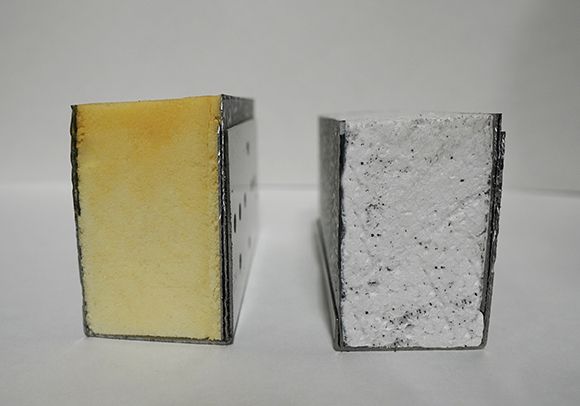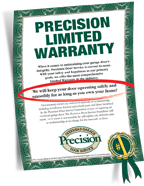Types of Garage Door Insulation





WITH 3,530 REVIEWS





CLICK
To view local phone numbers

Insulation isn’t just about keeping your garage warm or cool. It is also an important factor in the durability and stability of your garage door. There are two different types of insulation used in garage doors: polystyrene and polyurethane. And each comes with added benefits for your garage door.

Polystyrene is the same material used for a foam cooler and is cut to size and then placed within a garage door panel. It is the most common type of insulation for 3 layer garage doors. For a 2 layer steel door, a layer of vinyl backing is applied to the polystyrene to make it easier to clean–but is susceptible to damage from inside the garage. Polystyrene adds rigidity to the door and typically has an R-value between R6–R10. It’s a good insulator for keeping garages cool in the summer and warm in the winter.
Polyurethane is a dense spray injected, expanding foam insulation. As it is sprayed in the door from both sides, it expands to fill every nook and cranny inside the door, which adds rigidity. Polyurethane is only available for 3 layer garage doors. On average, it offers an R-value of R12–R19. Polyurethane is good for extreme climates where the temperature outside can greatly affect the temperature inside of your garage.
You may be asking yourself, “ What is garage door R-value? And why should I care about it?” R-value is the measure of resistance to heat flow through a material. Insulation is meant to stop the movement and transfer of heat. However, heat can enter and leave your home in two ways: conduction, which R-value measures, and air infiltration, which it does not.
(608) 247-5814
(608) 247-5814(920) 212-7493
(920) 212-7493(262) 214-0829
(262) 214-0829(608) 313-5958
(608) 313-5958












